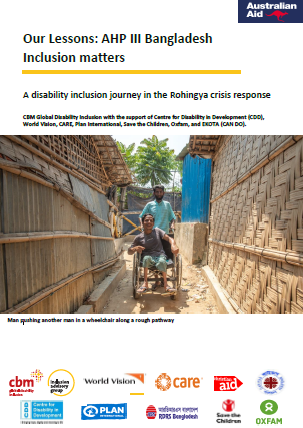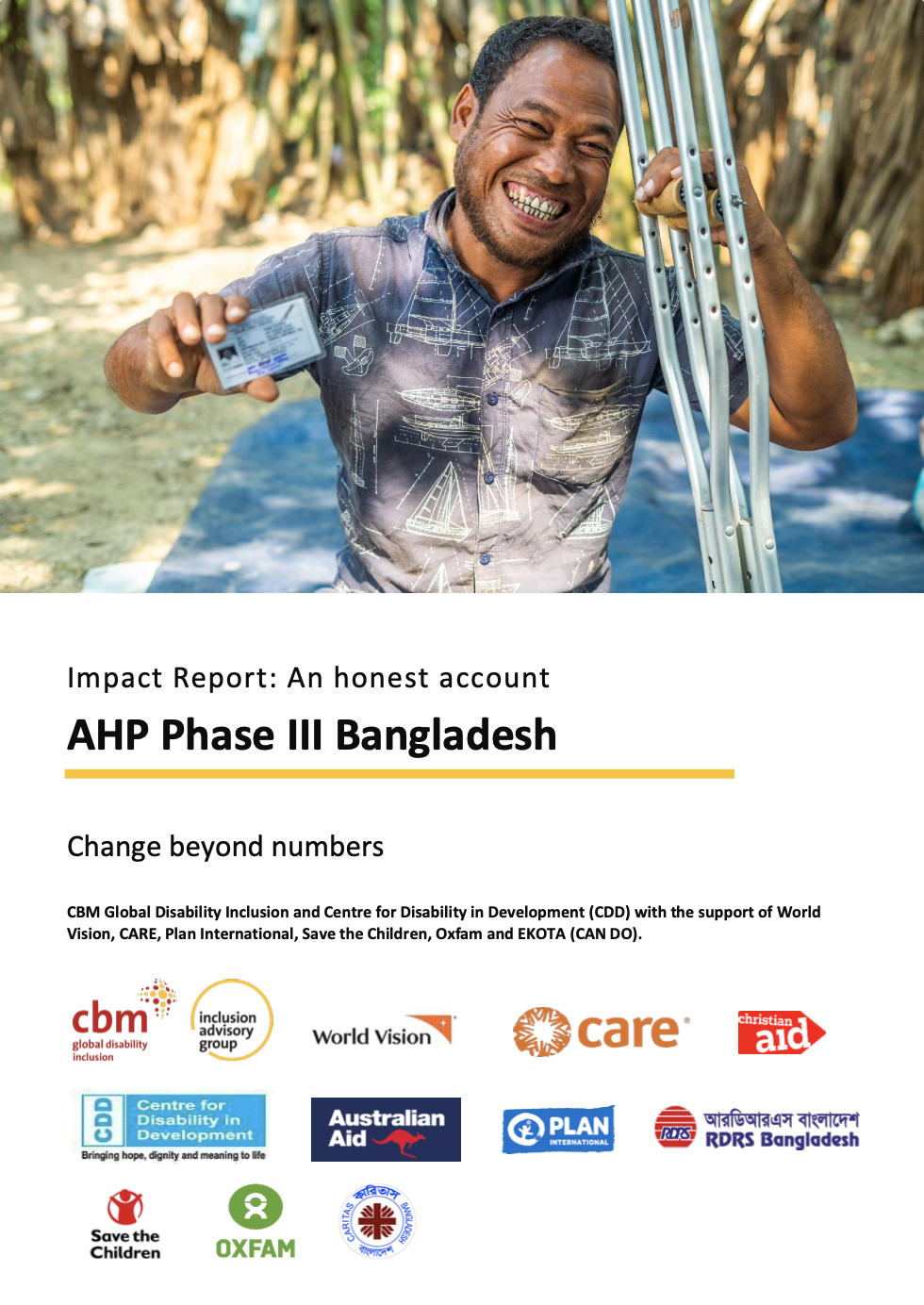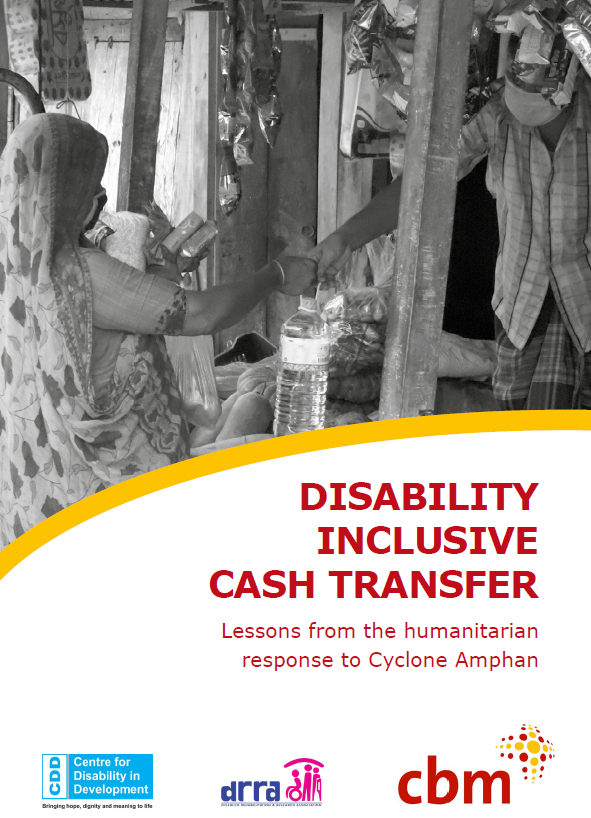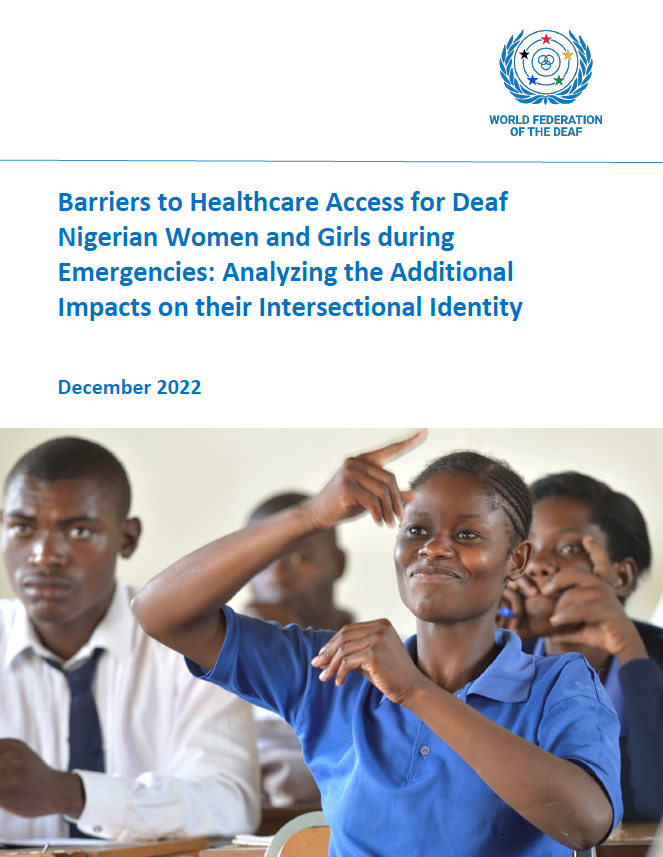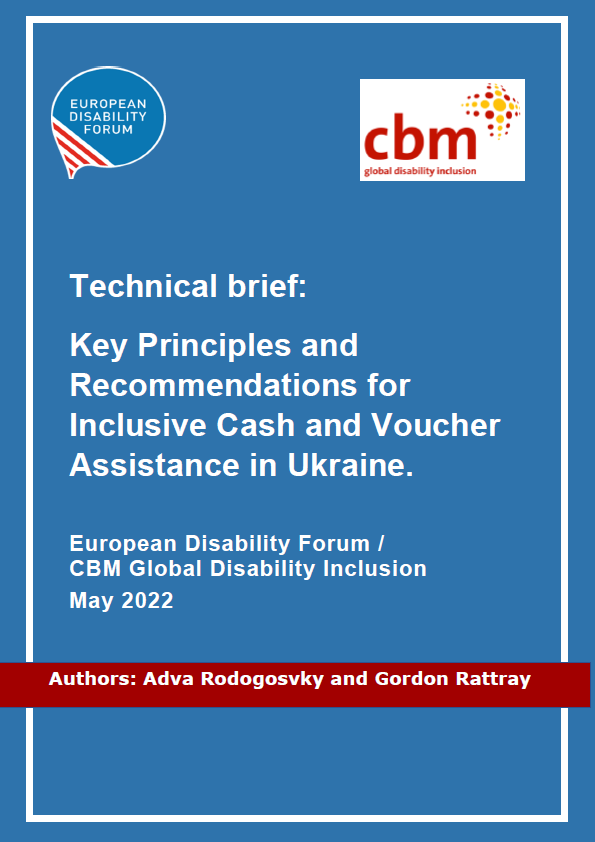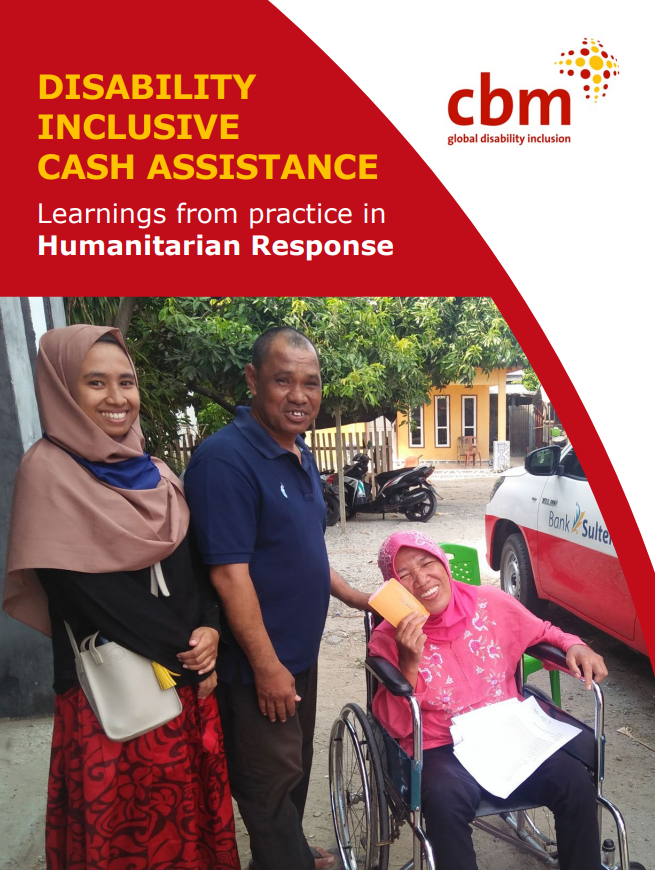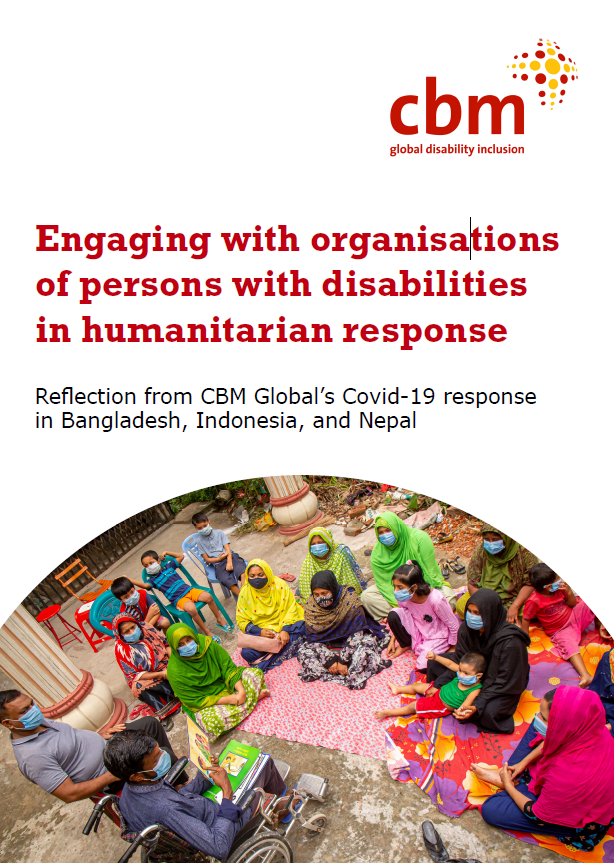Browse our resources to discover more about our approach, learning and the impact of our work.
AHP III Bangladesh: A disability inclusion journey in the Rohingya crisis
This report documents achievements and lessons learned and presents recommendations to progress disability inclusion further in the Rohingya response and for the humanitarian sector at large.
AHP Phase III Bangladesh Impact Report: An honest account
A new report seeking to reflect the lived experience of people with disabilities in the Rohingya AHP Phase III Response, their stories and feedback on what has changed for them, and the continued barriers they face.
Disability Inclusive Cash Transfer: Lessons from the humanitarian response to Cyclone Amphan
This learning document highlights good practices and lessons from this response and is intended to provide guidance to NGOs, state actors and OPDs to create inclusive responses and deliver equal outcomes through inclusive Multipurpose Cash Assistance (MPCA) in humanitarian action.
Barriers to Healthcare Access for Deaf Nigerian Women and Girls during Emergencies: Analyzing the Additional Impacts on their Intersectional Identity
This report presents preliminary research on the experiences faced in health care by deaf women and girls in Nigeria, highlighting the most recent emergency and disaster situation, the COVID-19 pandemic. The report will present several recommendations to reduce the inequities in the intersection of gender, disability, and linguistic minorities.
This technical brief is intended to provide general guidance for humanitarian agencies operating in Ukraine on how to implement Disability Inclusive Cash and Voucher Assistance (CVA). It aims to ensure that disability is mainstreamed within the CVA intervention and in line with the UN Convention on the Rights of Persons with Disabilities (CRPD), International Humanitarian Law and the Humanitarian Principles.
Disability Inclusive Cash Assistance: Learnings from practice in Humanitarian Response
This case study collection describes lessons learned from seven inclusive humanitarian cash transfer projects implemented from 2015 – 2020, and five ongoing projects from the 2020 Covid-19 pandemic responses. The projects employed cash transfer in a range of humanitarian crises; using unrestricted cash transfers distributed via different cash delivery mechanisms. Annex 1 provides an overview of the analysed responses and the project briefs of seven of the case studies. The collection aims to benefit both humanitarian practitioners engaged in CBI and the wider humanitarian sector by presenting insights and learning on how humanitarian CBI programs can be made more inclusive, to ensure equal outcomes for disaster-affected people with disabilities and other at-risk groups.
Engaging with organisations of persons with disabilities in humanitarian response
Reflection from CBM Global’s Covid-19 response in Bangladesh, Indonesia, and Nepal

